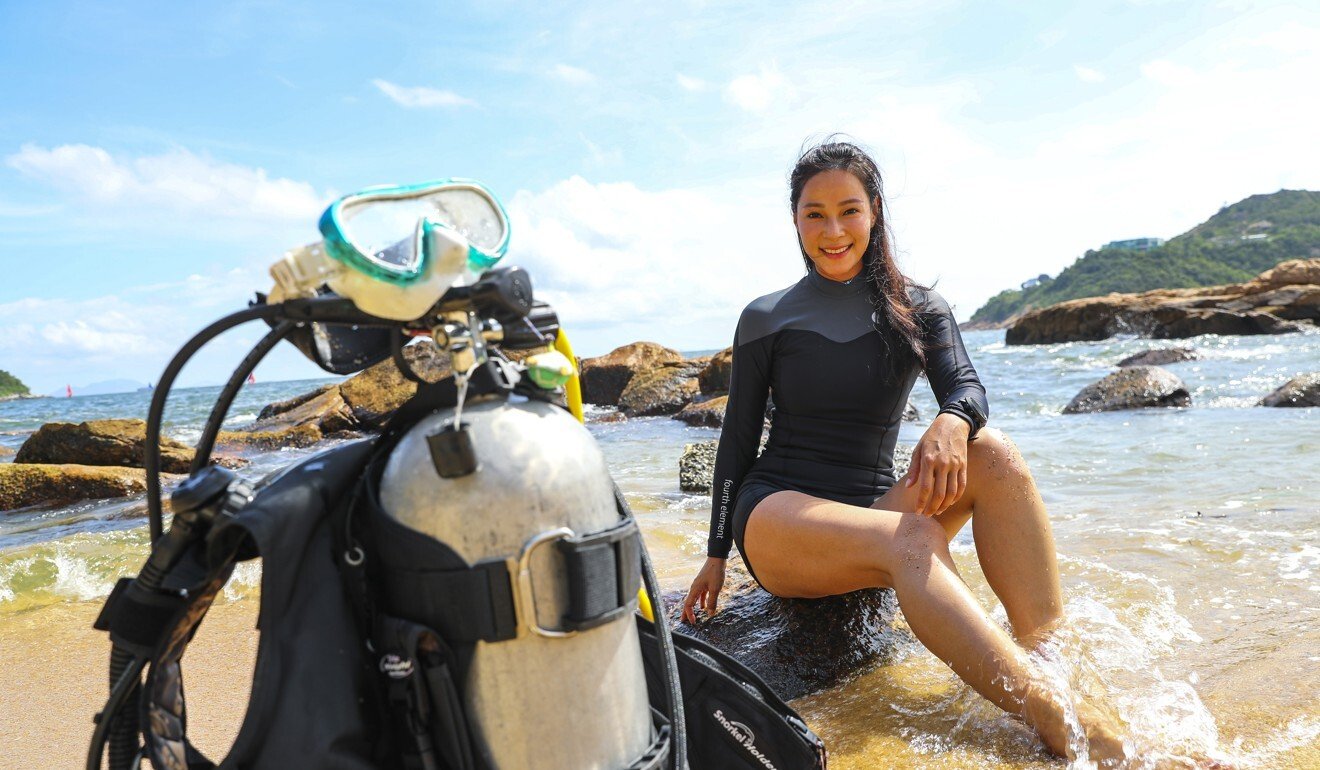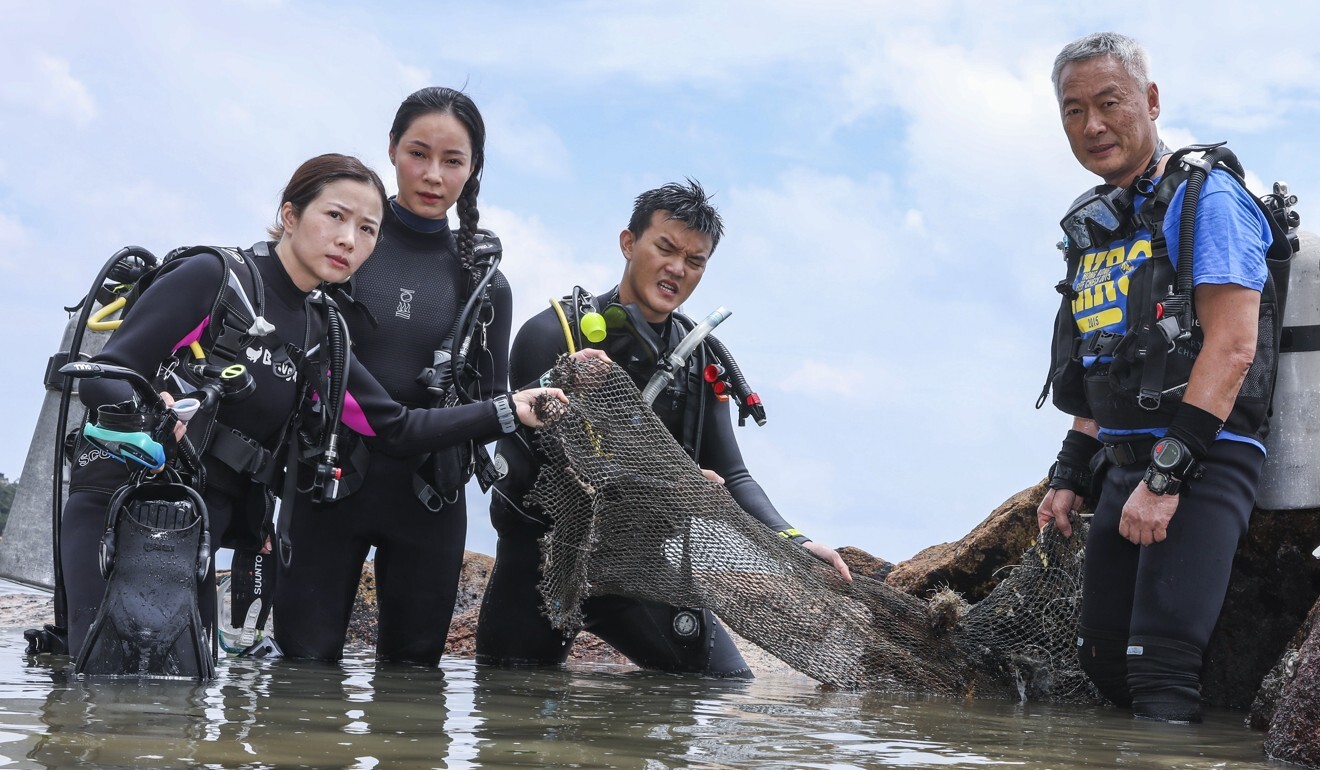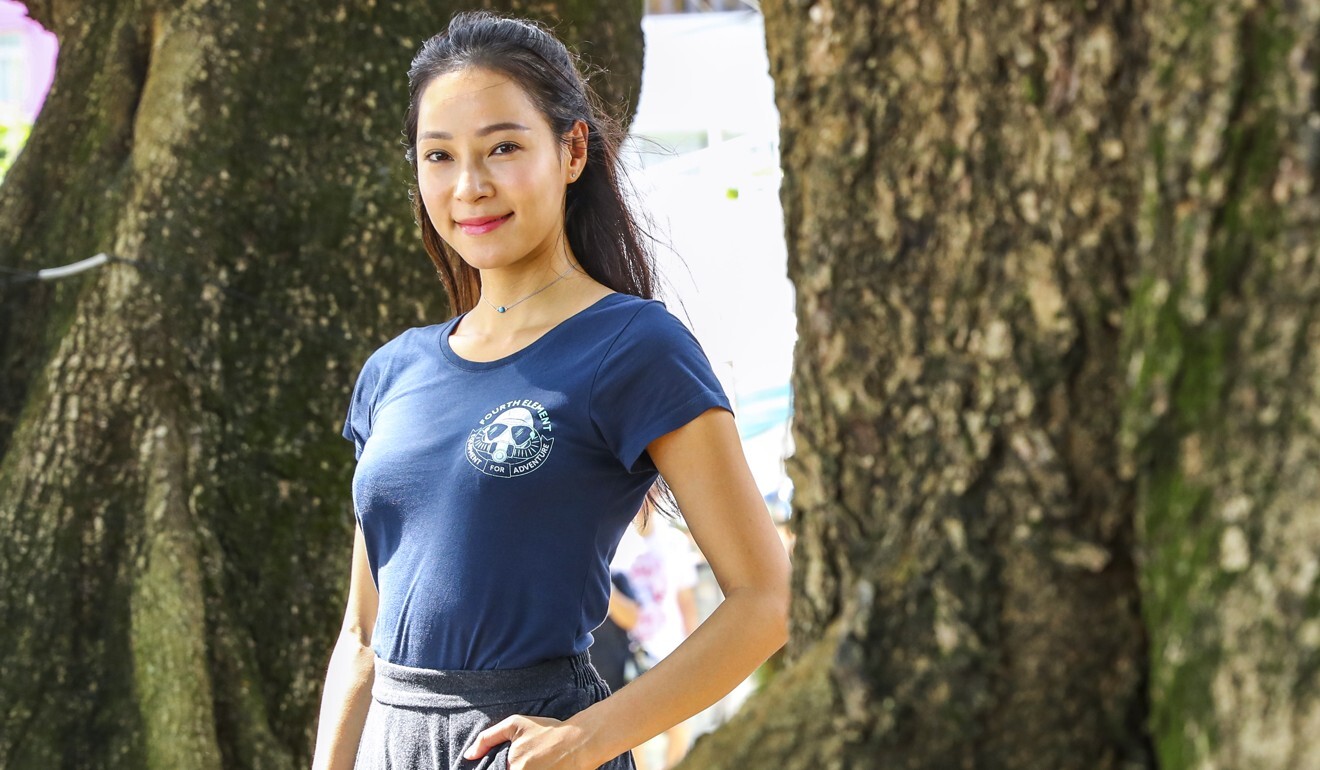
A veteran diver of 13 years, Hong Kong actress and model Hidy Yu Hiu-tung remembers one adventure above all – dancing with sharks.
Yu, 31, spent six days swimming among 20 tiger sharks last year in Jardines de la Reina in Cuba. The actress, with roles in six action movies, was invited by Australian magazine Ocean Geographic to star in a video named “Facing Grace”, promoting shark conservation.
Yu says she did not feel scared while underwater with the apex predators, but rather felt a connection, engaging with them and reaching out to them.
“That sharks are terrible creatures is a public misunderstanding,” she says. “They are marine animals – part of the ocean – and need our protection.”

She also dived with three crocodiles in a mangrove on her trip to the popular Cuban scuba diving destination.
Yu started diving at 18. A sporty person who loves trail running and boxing, she says diving has opened a new world for her to explore.
“It is a different world underwater. By diving, you can explore the two-thirds of Earth that is covered in water,” she says.
At the time she was working as a model, few of her peers could dive, so she was invited to different parts of the world to model underwater for magazines and TV shows.

It is not easy to model underwater, Yu says, as she had to hold her breath and keep her eyes open while trying to look calm and natural. She managed to do it by imagining herself as a fish free of shackles in water.
Because of her aquatic experience, Yu was invited to serve as the spokeswoman for the Miss Scuba International pageant held in Hong Kong in 2011, and as Ocean Ambassador to promote ocean conservation. She also gave speeches on marine conservation at Asia Dive Expo in Singapore and Beijing.
Having dived for more than a decade, Yu has seen the marine environment deteriorate worldwide.

She has swam in the waters of more than 20 countries, including Australia, Malaysia, the Philippines, Japan, Cuba and Palau. But over the past two years, she has spent more time in Hong Kong waters.
The city has severe marine pollution. According to the Environmental Protection Department, 15,439 tonnes of marine refuse were collected in 2017. Among them, most were plastics and foam plastics.
However, the problem was only brought to the attention of the general public last September when Typhoon Mangkhut – Hong Kong’s most intense storm on record – washed tonnes of rubbish onto the city’s shores. Much of the debris was decades old and difficult to break down, Yu says.
“As divers, we can see underwater rubbish, but others can’t,” she adds.
To help save the ocean and make Hong Kong a better place for diving, Yu, a certified diving instructor who runs a diving base called Bling Bling Ocean in Stanley, organises regular beach clean-ups and dives with other volunteers to pick up underwater rubbish such as cast-off fishing nets, also known as “ghost nets”, that endanger marine life and divers.
Yu’s husband Willian Lau, 34, is also a seasoned diver and is well aware of the hidden danger. “One of my diving buddies once got entangled by a ghost net. It was dangerous,” he says.
Yu also works with the Agriculture, Fisheries and Conservation Department to help collect data on ghost nets in Hong Kong waters, taking pictures and marking down the locations of them.
“We can love our home in different ways, like cleaning and saving it,” she says.







